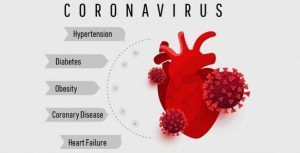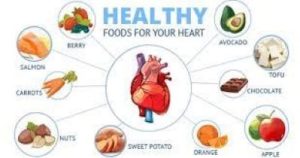Health experts are warning that heart attack rates have risen sharply among young adults, due in part to the prevalence of obesity. That is not to say that young people with slender frame are immune to heart attack, doctors warn.
They say that though it’s true that heart attacks rarely strike young adults, it’s becoming more common.
Doctors and scientists are still trying to work out what is driving up heart attacks among young adults — a group historically less at risk for acute cardiovascular events — but several parallel trends are likely at play.
 Obesity rates continue to rise
Obesity rates continue to rise
Adults under 50 are by no means the only age group affected by the so-called obesity epidemic, but experts suspect their cardiovascular health may be impacted more dramatically than that of older generations. “Even though obesity has increased in every age group, the slope of increase is much steeper in young adults than older adults,” Dr. Andrew Moran, a Columbia University preventive cardiologist and epidemiologist, warns.
That may be, in part, because “nutrition habits are pretty well-formed in childhood,” Cedars-Sinai cardiology professor Dr. Noel Bairey Merz notes. “I still eat pretty much the way I was raised” in the 1950s and 1960s, she says. “This was before fast food, before all the highly processed and snacking foods,” she explains.

Fast food became widely available following World War II, and by 2010, the share of meals that people eat out had eclipsed the proportion cooked at home. Younger patients — those now in their 40s and below — developed their eating habits in the heyday of McDonald’s, Doritos, snack bars and Big Gulps. Bairey Merz suspects that younger adults who were raised with a diet full of these high-calorie, low-nutrient foods are still eating them out of habits formed in childhood.
Low-quality diets and more sedentary lifestyles have contributed to the development of what Bairey Merz calls the “diabesity epidemic,” referring to the coinciding increases in obesity and diabetes rates. Obesity and diabetes are major risk factors for high blood pressure. And all three are risk factors for cardiovascular disease and heart attacks because they can damage blood vessels and put a strain on your heart.

COVID-19
COVID may have fueled a further increase in premature heart attacks, experts say, adding, “We now know that COVID-19 can damage the heart and cardiovascular system, in some cases causing a dangerous form of heart inflammation called myocarditis, as well as attacking the lungs. Severe infections are relatively rare among young people. But when they happen, it’s often to young adults with risk factors for heart attacks, including obesity, says Moran. “The virus’s effect on the heart muscle has led to acute cardiovascular events related to COVID,” he explains.
younger women experience more stress, anxiety and pressure. High levels of stress can lead to missed periods. Without monthly ovulation, estrogen levels are very low and this is a contributing factor to heart disease and, consequently, heart attacks
Cleveland Clinic cardiologist Dr. Ashish Sarraju says, “…the virus affects the heart in a number of different ways that we’re still trying to understand, so we need to look at nontraditional factors as well.”
Younger men are ‘lost to the health care system’
Men of all ages are more likely than women to suffer heart attacks. But young men — more of whom are now obese, diabetic or both — with warning signs may slip more easily through the cracks, says Moran. “A proportion of young women will end up in the medical system because they see a gynaecologist,” which is recommended annually, he explains. “But young adult men are basically lost to the health care system … they don’t know if they have high blood pressure or diabetes until they wind up in the hospital.”
 Smoking, diabetes, periods and stress
Smoking, diabetes, periods and stress
The rise in heart attack rates has been steepest among young women, some research suggests. From 1995 to 2014, hospitalizations for heart attacks in women between ages 35 and 54 rose from 21% to 31%, according to one study. Bairey Merz is among those trying to find out why the rate is spiking among young women, and she has several theories.
For one, “the ‘diabesity’ epidemic is clearly contributing to a rising rate of heart disease,” she says. “And diabetes is a stronger risk factor [for cardiovascular problems] for women than for men, but we don’t know why.”

There’s also the problem of smoking and vaping, both of which increase the risk of a heart attack. “We clearly are seeing a demographic of college-educated women who are more likely to start smoking when they go away to college … for what they say is weight management,” Bairey Merz says. She adds that e-cigarettes are a big part of this problem and are likely just as bad for cardiovascular health as traditional cigarettes.
young adult men don’t know if they have high blood pressure or diabetes until they wind up in the hospital
Finally, the relationship between stress, periods and hormones may pose a unique heart attack risk to women. This is an emerging area of research, says Bairey Merz. “But it’s becoming pretty clear in research that younger women are facing more stress, anxiety and pressure, and a lot of this is related to social media.” High levels of stress can disrupt menstrual cycles; specifically, it can lead to missed periods. “When you’re not ovulating each month, your estrogen levels are very low and this is a contributing factor to heart disease” and, consequently, heart attacks, Bairey Merz explains.
What you can do to reduce your risks
Some good news: There’s a lot you can do to reduce your heart attack risks, starting now.

Eat better: “Consume fresh food, including fruits and vegetables, and minimize the amount of packaged food you eat,” Moran advises. “If you follow that basic advice, you’re going to have a much lower-sodium diet,” which is crucial for heart disease prevention.
Be more active: “Do something that’s sustainable for you,” like getting the recommended two and a half hours of moderate physical activity per week, or getting in 7,000 steps a day.
Quit tobacco: “Don’t smoke; e-cigarettes are the same, vaping is the same, smoking cannabis is the same,” says Bairey Merz. “There is no safe tobacco or cannabis” smoke.
Get healthy sleep: Sarraju says many young adults may be unaware of how important “sleep quality and sleep quantity” are for heart health. The AHA recommends seven to nine hours of sleep each night for adults.
drinking any amount of alcohol has now been linked to greater heart disease risks
Drink less alcohol: A glass of red wine was once thought of as heart-healthy. But recent research has debunked that myth (and others) about alcohol consumption. In fact, drinking any amount of alcohol has now been linked to greater heart disease risks.
Manage your weight: Talk to your health care provider about what a healthy weight for you would be, and manage it with “nutrition and daily activity,” says Bairey Merz.
Get cholesterol, blood sugar and blood pressure checked: Find out what your blood pressure is, along with your cholesterol and blood sugar levels.
With sources from Yahoo Life.


